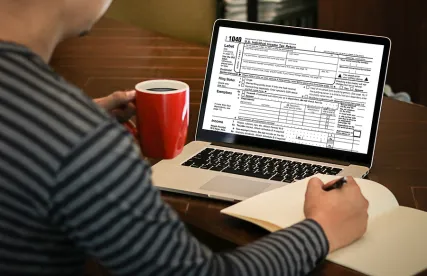The mammoth appropriations legislation passed by the House and Senate on Monday, December 21 includes a number of tax-related provisions. We have summarized in this tax alert the provisions that we expect are most likely to be of interest to our business clients. They are contained in two separate sections of the bill — one of which is entitled the COVID-related Tax Relief Act of 2020 and the other of which is entitled the Taxpayer Certainty and Disaster Tax Relief Act of 2020.
COVID-related Tax Relief Act of 2020
Extension of Deferral of Employee Social Security Taxes
Section 274 provides that for employers who have deferred the withholding of employees’ social security taxes for the period September 1, 2020 to December 31, 2020 as permitted under IRS Notice 2020-65 issued this past August, the deferred amounts must be paid to the IRS over the period January 1, 2021 to December 31, 2021. This extends the period for repayment from the original four-month period specified in Notice 2020-65 to 12 months.
Restoration of Deductions of Expenses Funded by Forgiven PPP Loans
The Coronavirus Aid, Relief and Economic Security (CARES) Act provided that no taxable debt discharge income should be recognized on account of forgiveness of Payroll Protection Plan (PPP) loans. The IRS subsequently attempted to obliterate the tax benefits from that provision by ruling that forgiveness of a PPP loan would make all the expenditures funded by the loan nondeductible. Section 276 overturns the IRS’s wrongheaded ruling.
Extension of Paid Family or Sick Leave Tax Credits
Section 286 extends from December 31, 2020 to March 31, 2021 the period for which applicable credits are available for paid family or sick leave under the Families First Coronavirus Response Act.
Taxpayer Certainty and Disaster Tax Relief Act of 2020
Liberalization, Expansion and Extension of Employee Retention Tax Credits
Section 207 liberalizes the rules relating to employee retention tax credits under the CARES Act in a number of ways:
-
Instead of the credit being equal to 50% of qualified wages, the credit has been increased to 70% of qualified wages.
-
The $10,000 per-employee cap on qualified wages has been increased to a per-quarter cap — i.e., for furloughs that span more than one quarter, the cap is $10,000 per quarter per employee rather than an overall $10,000 per-employee cap.
-
The quarterly gross receipts reduction test for an employer to qualify for the credit applies if the employer’s gross receipts for a quarter are less than 80% of the gross receipts for the corresponding quarter in the previous year, rather than the 50% test required under the original CARES Act provision. Moreover, instead of comparing a quarter’s gross receipts to the corresponding quarter in the prior year for purposes of this 80% test, an employer may elect instead to compare the gross receipts in a quarter to the immediately preceding quarter.
-
The 100-employee threshold for an employer to be considered a large employer — and therefore required to demonstrate, as a predicate for claiming the tax credit with respect to a furloughed employee’s wages, that the furlough was attributable to a government shutdown order or to the circumstances resulting in the employer meeting the quarterly gross receipts tests — has been increased to 500 employees. Thus, an employer with no more than 500 employees, that qualifies for the credit because it is directly or indirectly impacted by a government shutdown order or under the 80% quarterly gross receipts test, may claim the credit with respect to all furloughed employees — and not just those affected by the government shutdown order or the reduction in gross receipts.
-
The treatment of health care insurance benefits has been clarified, consistent with the position the IRS has been taking on them, so that they may be treated as qualified wages even if they are the only benefit being provided to furloughed employees.
-
Instead of expiring on December 31, 2020, the credit is now available for periods up to June 30, 2021.
Temporary Restoration of Deduction for Business Meals
Section 210 provides that for 2021 and 2022, business meals are 100% deductible.
Extension of Charitable Contribution Deductions for Non-Itemizers
Section 212 provides that the up to $300 of charitable contribution deductions for non-itemizers that the CARES Act created for contributions in 2020 will also apply for 2021.





 />i
/>i

